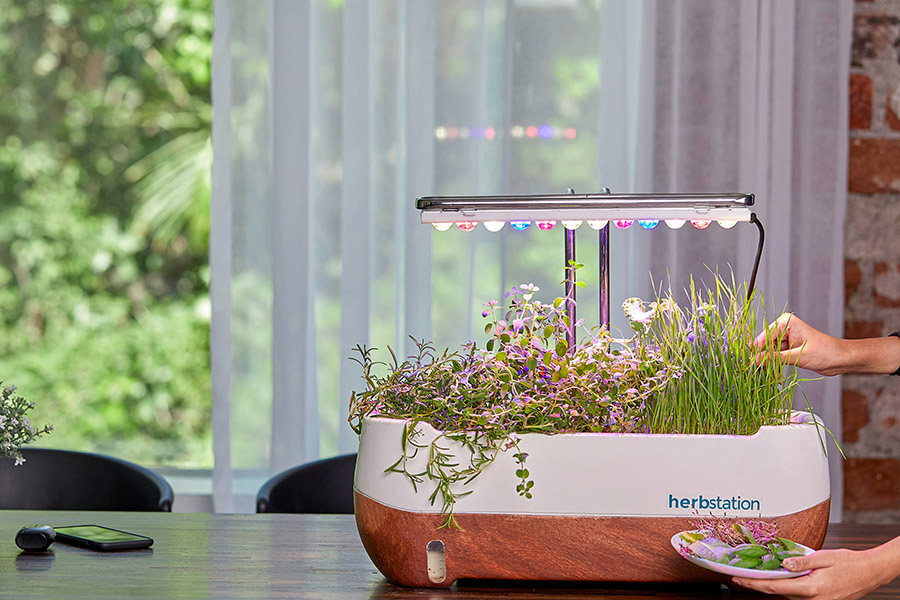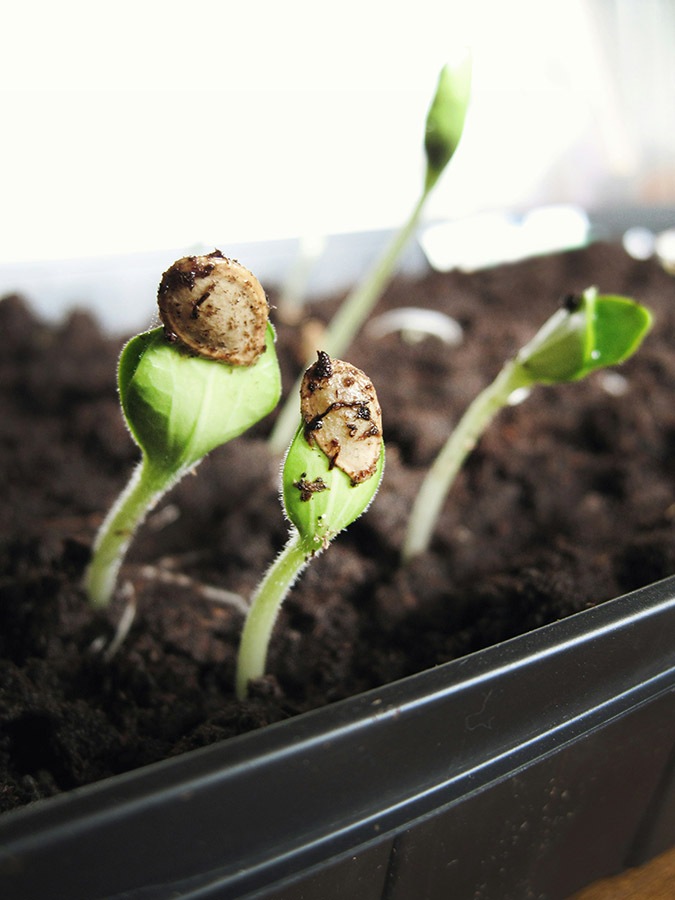Moving to our dream homestead in Brittany, France, is something we look forward to every day. But while we’re still in Singapore, living in a small flat doesn’t stop us from practicing and learning the essential skills we’ll need when we finally have our own piece of land.
Urban homesteading has become our way of preparing for this big transition, and we’re excited to share what we’ve learned so far.
Setting Up an Urban Garden
One of the most rewarding parts of urban homesteading is growing your own food, even in a tiny space. We’ve turned our small balcony into a green oasis filled with herbs, leafy greens, and even a few vegetables!
Container Gardening: We started with the basics: container gardening. It’s amazing what you can grow in pots—everything from cherry tomatoes to chili peppers. The key is choosing the right containers and soil. We use deep pots for root vegetables like carrots and wider ones for herbs that spread, such as mint and basil.
Vertical Gardening: To maximize space, we’ve gone vertical! Wall-mounted planters and hanging pots are great for smaller plants. We’ve even set up a DIY trellis for our climbing beans and cucumbers. If you’re short on floor space, vertical gardening is a game-changer.
Indoor Gardening Tips: Inside, we’ve dedicated a sunny windowsill to delicate plants like microgreens and herbs that need more care. We also use grow lights to supplement natural light, especially during rainy weeks when sunlight is scarce.

Composting in Small Spaces
Composting is a must-have skill for any future homesteader, and yes, it’s possible even in an apartment! We started with a vermicomposting bin—a small container filled with worms that eat our food scraps and turn them into nutrient-rich compost.
Managing Space and Smell: To avoid any unpleasant odors, we keep a balance of “greens” (like vegetable peels) and “browns” (like cardboard and dry leaves). This layering technique helps speed up the decomposition process and keeps the bin from smelling bad. Our little compost bin now provides us with all-natural fertilizer for our plants.
Cooking and Preserving Food
Learning to cook from scratch has been one of the most enjoyable parts of our urban homesteading journey. We’re not just making meals—we’re honing skills that will be invaluable on our homestead.
Cooking from Scratch: We’ve mastered simple recipes like homemade yogurt. These not only taste better than store-bought versions but also reduce our reliance on processed foods. We’ve even tried our hand at making our own cheese—though we’re still working on perfecting it!
Preserving Techniques: Canning and pickling are next on our list. We’ve started with small batches of jam using seasonal fruits. It’s incredibly satisfying to see jars of homemade preserves lined up in our kitchen, ready to be enjoyed or shared with friends.
DIY Projects for Urban Homesteading
We love DIY projects, and they’re a great way to practice the self-sufficiency we’ll need on our homestead.
Natural Cleaning Products: We’ve swapped out chemical cleaners for homemade ones using vinegar, baking soda, and essential oils. They’re just as effective and much better for the environment. Plus, we no longer need to buy separate cleaners for different tasks—one all-purpose cleaner does it all!
Upcycling Projects: Upcycling has become a fun hobby. We’ve turned old jars into storage containers, made planters out of tin cans, and even built a small herb drying rack using scrap wood. It’s all about finding creative ways to reuse what we have and reduce waste.

Water Conservation Practices
Being in an apartment means we don’t have a garden that needs irrigation, but we’re still mindful of water use.
Efficient Watering for Plants: For our container garden, we use a simple drip irrigation system made from recycled water bottles. It’s an easy way to keep our plants hydrated without wasting water.
Reducing Water Usage Indoors: We’ve also become more conscious of our water usage at home. Simple changes like using a bowl to rinse vegetables (and then using that water for plants) or taking shorter showers can make a big difference.
Building a Homesteading Community
Connecting with others who share our interests has been invaluable. We’ve found local urban gardening groups and attended workshops that have expanded our knowledge and skills.
Finding Community: There’s a wealth of knowledge out there, and joining local or online groups can be a great way to learn. We’ve met many inspiring people who have been homesteading in small spaces for years, and their tips and support have been invaluable.
Preparing for the Future Homestead
Everything we’re doing now is a step toward our future homestead. We’ve learned that even small efforts can have a big impact and that practicing these skills now will make our transition much smoother.
Setting Long-term Goals: We’ve started drafting a layout for our future garden, listing the animals we want to raise, and setting goals for our first year on the homestead. It’s all about having a clear vision and taking small steps every day to get there.
Conclusion
Urban homesteading has been an enriching experience for us, and it’s something we encourage everyone to try, regardless of space limitations. It’s not just about growing food or making things from scratch—it’s about creating a lifestyle that’s more sustainable, mindful, and fulfilling.
Whether you’re in a small flat like us or already on your homestead, there’s always something new to learn and enjoy on this journey.
If you’re on a similar path, we’d love to hear from you! Share your experiences or ask us questions in the comments below.


